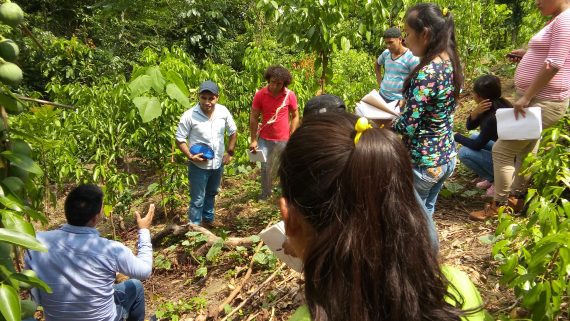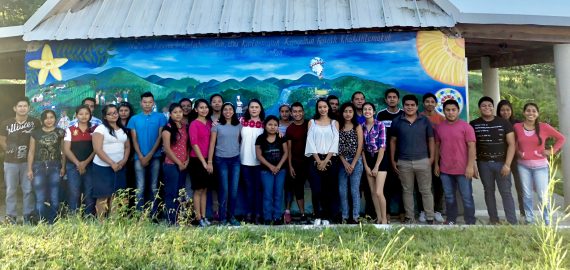Universidad Veracruzana’s Food Security & Health Promotion Initiatives During the COVID-19 Crisis (Mexico)
Universidad Veracruzana (UV) in partnership with the Veracruz State Department of the Environment has involved local communities and indigenous youth in food security projects throughout the region. By way of participatory research and reflection-in-action, community members have worked with students to incubate start-up projects in conservation of water resources, greenhouses, and agro-ecological farming.
 In response to the current global pandemic presented by COVID-19, UV is supporting local authorities by drawing on experience from its Engagement Department, Intercultural University UVI and Sustainability Coordination, and CoSustenta to join forces with government and community partners to enhance efforts already in place in food security and health promotion for communities throughout Veracruz.
In response to the current global pandemic presented by COVID-19, UV is supporting local authorities by drawing on experience from its Engagement Department, Intercultural University UVI and Sustainability Coordination, and CoSustenta to join forces with government and community partners to enhance efforts already in place in food security and health promotion for communities throughout Veracruz.
Indigenous communities make up 15% of the Veracruz population, and many are in rural locations lacking access to health services, cellular coverage, and internet. Furthermore, “58.6% of the Veracruz population are living in poverty and 24.4% lack access to healthy food,” resulting in issues such as malnutrition and obesity. With the restrictions and closures of many marketplaces due to COVID-19, these issues were heightened. Miguel Escalona and Cliona Maher, of UV, note that the pandemic brought to light “that there are many inequities and injustices around being able to acquire basic goods for a decent quality of life.”
Impacts

The UV partnership addressed these issues by creating communities of learning to increase local food production, strengthen local economies and empower communities to take on the issue of food insecurity by providing education and resources. They set up educational Support Groups for Production at Home, community seed exchange events, and opened an Agroecological Market or Tianguis Agroecologico Xalapa. They also worked with local communities to strengthen their digital literacy and helped producers create online communications campaigns to advertise their markets. UV students provide trainings, workshops, and share their experience and skills to make change in the local communities they serve. The project also emphasized the “recognition and visibility of solidarity economy practices, and the empowerment of women, recognizing them as key elements for a paradigm shift in the family and in the economy.”
The UV partners with various government agencies to “support local food production initiatives to reactivate the local economy and promote the empowerment of local actors to maintain these processes over time.” Escalona and Maher describe the evolving role for universities, noting that “it is necessary to dialogue, build community links, and develop participatory action-research processes that generate new knowledge and new practices.” They also described the importance of sharing experiences and approaches with international communities of practice and hope to continue to support and develop these relationships.